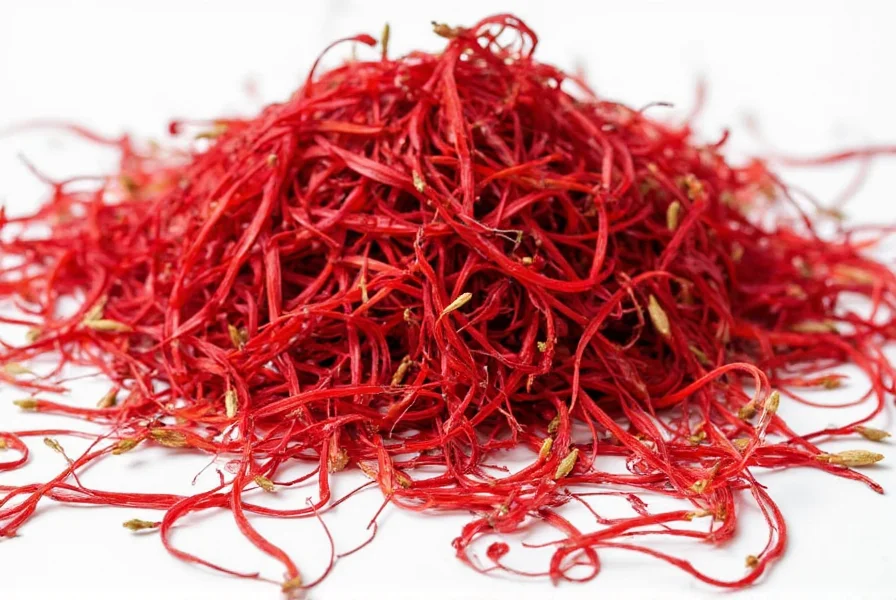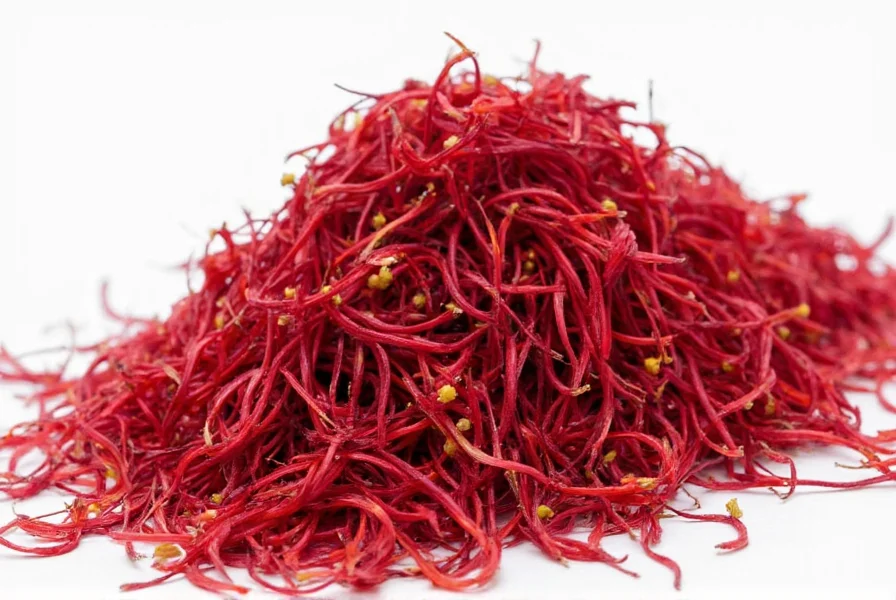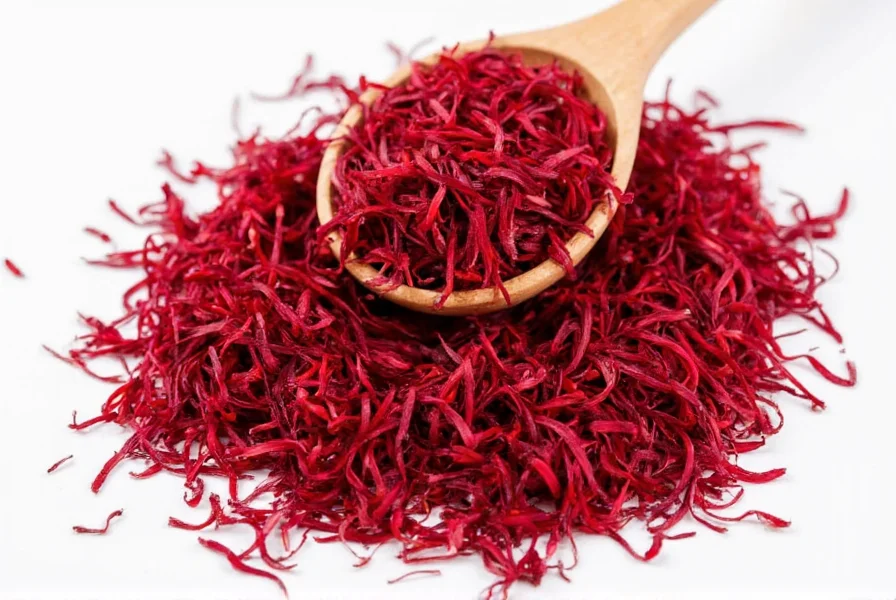Saffron supplements, derived from the Crocus sativus flower stigma, typically contain 30 mg/day of standardized extract with 3.5% safranal and 2% crocin for mood support. Clinical research shows potential benefits for mild-to-moderate depression, PMS symptoms, and appetite control, with minimal side effects at recommended doses. Always consult a healthcare provider before starting supplementation, especially if taking medications or managing health conditions.
Saffron supplements have gained significant attention in evidence-based nutrition for their potential therapeutic benefits. As one of the world's most expensive spices by weight, saffron's concentrated extract offers a more accessible way to harness its bioactive compounds. Unlike culinary saffron used in cooking, supplements provide standardized doses of key components like crocin, crocetin, and safranal that research suggests contribute to its physiological effects.
Understanding saffron supplement benefits requires examining both traditional uses and modern clinical evidence. For centuries, Persian and Ayurvedic medicine have utilized saffron for mood enhancement and women's health. Today's standardized extracts allow researchers to investigate these applications with scientific rigor, producing promising results particularly in mental wellness and hormonal balance.
What Makes Saffron Supplements Unique
The distinctive properties of saffron supplements come from three primary bioactive compounds:
| Compound | Concentration in Quality Supplements | Primary Functions |
|---|---|---|
| Crocin | 2-3% | Antioxidant, mood regulation, eye health support |
| Safranal | 0.5-1% | Neuroprotective effects, anxiety reduction |
| Crocetin | 0.3-0.5% | Anti-inflammatory, cardiovascular support |
Unlike raw saffron threads where compound concentration varies significantly, quality supplements standardize these active ingredients to ensure consistent dosing. This standardization represents a critical difference between culinary saffron and therapeutic supplements, making clinical research possible.
Evidence-Based Health Benefits of Saffron Supplements
Modern research has investigated saffron supplement benefits across several health domains, with the strongest evidence supporting:
Mood Support and Depression Management
Multiple randomized controlled trials indicate saffron extract benefits for mild-to-moderate depression. A comprehensive 2020 meta-analysis published in Human Psychopharmacology reviewed 10 clinical trials involving 702 participants. Researchers found saffron supplementation (typically 30 mg/day of standardized extract) demonstrated comparable efficacy to conventional antidepressants like fluoxetine and imipramine, with fewer reported side effects.
The mechanism appears related to saffron's influence on neurotransmitter systems. Studies suggest crocin and safranal may modulate serotonin, dopamine, and norepinephrine levels while reducing inflammation that contributes to depressive symptoms. This makes saffron supplement for depression a promising complementary approach, though not a replacement for prescribed treatments in severe cases.
PMS and Menstrual Health Support
Clinical evidence supports saffron for PMS symptoms relief. In a double-blind, placebo-controlled trial published in Complementary Therapies in Medicine, women taking 30 mg/day of saffron extract reported significant reductions in both physical and emotional PMS symptoms compared to placebo. Researchers noted improvements in irritability, headaches, and cravings within just two menstrual cycles.
Appetite Control and Weight Management
Emerging research on saffron supplement dosage for weight loss shows promising results. A 2010 study in Nutrition Research found participants taking 176.5 mg/day of saffron extract reported reduced snacking frequency and decreased hunger compared to placebo. The effect appears related to saffron's influence on serotonin pathways that regulate appetite and emotional eating.
Proper Saffron Supplement Dosage Guidelines
Understanding how much saffron supplement should I take is crucial for safety and effectiveness:
- Mood support: 30 mg/day of standardized extract (providing 2% crocin and 0.5% safranal)
- PMS symptom relief: 30 mg twice daily during luteal phase (days 15-28 of cycle)
- Appetite control: 88.25 mg twice daily before meals
Most clinical trials use doses between 20-50 mg daily of standardized extract. Higher doses don't necessarily provide additional benefits and may increase risk of side effects. Quality supplements clearly state the concentration of active compounds, which matters more than the total milligram amount.

Safety Profile and Potential Side Effects
Saffron supplement side effects are generally mild when taken at recommended doses. The most commonly reported issues include:
- Dry mouth (affecting approximately 10% of users)
- Mild nausea (particularly when taken on empty stomach)
- Temporary changes in appetite
- Rare cases of dizziness or headaches
More serious concerns emerge at extremely high doses. Consuming more than 5 grams daily may cause toxic effects, though quality supplements contain doses far below this threshold. Pregnant women should avoid therapeutic doses as saffron may stimulate uterine contractions. Individuals taking antidepressants, blood thinners, or blood pressure medications should consult healthcare providers before using saffron supplements due to potential interactions.
Choosing a Quality Saffron Supplement
Not all saffron supplements deliver equal benefits. When evaluating products, consider these factors:
- Standardization: Look for products specifying crocin (2-3%) and safranal (0.5-1%) content
- Third-party testing: Certifications from USP, NSF, or ConsumerLab indicate quality verification
- Extraction method: Water-based extracts preserve more active compounds than alcohol-based
- Origin transparency: Iranian or Spanish saffron typically offers highest quality
The best saffron supplement for mood support will contain adequate concentrations of both crocin and safranal, as research suggests these compounds work synergistically. Avoid products listing "proprietary blends" without disclosing specific compound concentrations.

Saffron Supplement Research: Current Limitations
While saffron supplement research shows promise, several limitations exist:
- Most studies have small sample sizes (fewer than 100 participants)
- Long-term safety data beyond 12 weeks remains limited
- Research primarily focuses on mild-to-moderate conditions
- Standardization methods vary between studies
Researchers call for larger, longer-term studies to confirm findings and establish optimal dosing protocols. Current evidence supports saffron as a complementary approach rather than a standalone treatment for most conditions.
Integrating Saffron Supplements Into Your Wellness Routine
For those considering saffron crocin benefits as part of their health regimen:
- Start with lower doses (15-20 mg/day) to assess tolerance
- Take with food to minimize potential stomach upset
- Allow 4-6 weeks for noticeable effects on mood or PMS symptoms
- Track symptoms in a journal to objectively assess benefits
- Consult your healthcare provider if taking medications
Remember that supplements work best as part of a comprehensive approach to health that includes balanced nutrition, regular exercise, and stress management techniques. Saffron supplements represent one potential tool among many for supporting wellness.
Frequently Asked Questions
What is the most effective dosage for saffron supplements?
Research indicates 30 mg per day of standardized saffron extract (providing approximately 2% crocin and 0.5% safranal) represents the most effective dosage for mood support and PMS symptom relief. Higher doses don't necessarily provide additional benefits and may increase risk of side effects. Always follow product-specific instructions and consult with a healthcare provider before starting supplementation.
How long does it take for saffron supplements to work for depression?
Clinical studies suggest it typically takes 4-8 weeks of consistent daily use at 30 mg/day to notice significant improvements in mood symptoms. Some users report subtle changes in emotional regulation within 2 weeks, but maximum benefits generally require 6 or more weeks of regular supplementation.
Can I take saffron supplements with antidepressants?
Consult your healthcare provider before combining saffron supplements with antidepressant medications. While research suggests saffron may work through similar pathways as some antidepressants, potential interactions require professional evaluation. Never discontinue prescribed medications without medical supervision.
Are saffron supplements safe for long-term use?
Current research indicates saffron supplements appear safe for continuous use up to 12 weeks. Limited data exists on safety beyond this timeframe, though traditional use suggests long-term consumption at culinary doses is generally well-tolerated. For therapeutic supplementation beyond 3 months, periodic evaluation with a healthcare provider is recommended.
What should I look for when choosing a quality saffron supplement?
Look for products that specify standardization of active compounds (2-3% crocin, 0.5-1% safranal), third-party testing certifications (USP, NSF), transparent origin information, and water-based extraction methods. Avoid proprietary blends that don't disclose specific compound concentrations. Reputable brands provide certificates of analysis verifying potency and purity.











 浙公网安备
33010002000092号
浙公网安备
33010002000092号 浙B2-20120091-4
浙B2-20120091-4